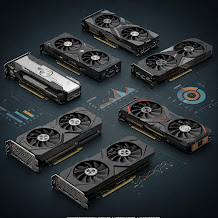Computer with AI and Artificial Muscles to Suppress Tremors
A new AI-based computer integrated with artificial muscles is a breakthrough innovation that is transforming the field of medical technology. Designed to help people with tremor-related conditions such as Parkinson's disease, the device provides real-time stabilization for improved control and precision.
The revolutionary technology behind it
This advanced computer, called NeuroStabilizer X, uses advanced AI algorithms and body-responsive artificial muscles to counteract involuntary movements. The system instantly detects tremors and generates opposing micro-corrections, effectively stabilizing the user's hand movements.
Applications and Benefits
Medical Application: Helps patients with neurodegenerative disorders.
Precision tasks: Ideal for surgeons, engineers, and artists who need steady hands.
Wearable and adaptable: Compact, lightweight, and adjustable for different needs.
Clinical development and support
The NeuroStabilizer X is currently undergoing clinical trials at the NeuroMotion Institute in collaboration with leading biotech organizations and AI research labs. It has received significant funding from MedTech Solutions, a global leader in healthcare innovation.
Market availability and pricing
The NeuroStabilizer X is expected to launch in 2025 and will be available through specialized medical distributors and AI technology companies. The estimated price is $2,499, making it an affordable option for both individuals and professionals.
Key Features
Processor: Neural Engine Powered by AI
Response Time: <0.01s Tremor Detection
Weight: Lightweight (less than 500g)
Battery Life: 18+ hours on a single charge
Connectivity: Bluetooth and AI Cloud Updates
Expert and User Testimonials
Medical professionals are optimistic about its potential, with early testers reporting a 70% improvement in tremor reduction. Experts believe this will be a game-changer for both healthcare and precision professions.
Would you like to try out such an AI-powered device? Let us know in the comments!
🔗 Read more: TECHNO-AN












Comments
Post a Comment